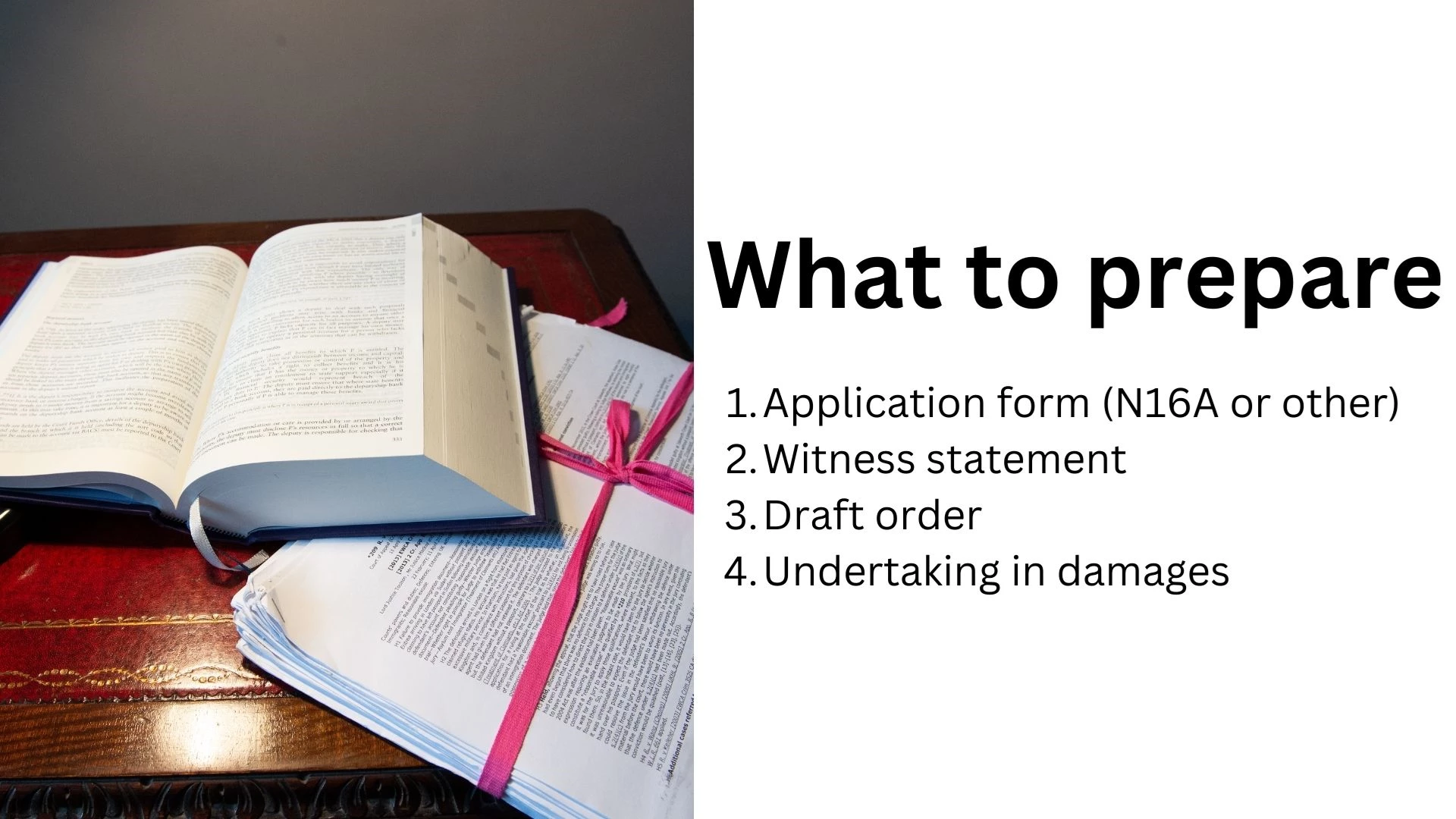Injunctions - a checklist
Injunctions are emergency orders, often made very quickly after instructions are received and without notice to the other side but with potentially long-lasting effects and expensive costs implications. Clients are often running on adrenaline, and may be panicking. A few moments spent considering the issues raised below and running through the checklist will help to ensure that your injunction applications are successful but not too stressful!
Injunctions are usually free-standing applications or a pre-cursor to proceedings but can and do crop up in a variety of contexts. An injunction application seeks an emergency order to prevent someone from doing something or, more unusually, to force them to do something. The concerns for the court are broadly the same when considering any injunction application.
An injunction is a very practical order. In a hypothetical legal system where decisions can be made instantly, there would be no real need for interim/interlocutory injunctions. In reality, the passage of time necessary for a case to be heard—for parties to be notified, pleadings to be drafted, evidence to be prepared and a hearing to take place—can result in prejudice. An interim injunction, properly granted, offers a holding position. It ensures that nothing is lost, damaged or changed because of the time that must elapse between conflict and resolution.
A prohibitory injunction is generally an attempt to maintain the status quo. A mandatory injunction, on the other hand, requires the respondent to do something: generally they must either stop a continuing wrongful omission or undo a wrongful act. Whilst the line between prohibitory and mandatory injunctions can sometimes seem unclear, it will be very obvious to a judge if an application seeks the former in the guise of the latter (e.g. an application to “prevent the Respondent from defaulting on a payment”).
Although injunction applications are often prepared with little time and few instructions, care must be taken to offer the court as much information as possible. A witness statement will almost always be required. As the application is made without notice, the maker of the statement (or statements) will also have a duty of candour to the court, and will have to be warned that a failure to set out the position in utmost good faith may well mean that the injunction is discharged at the return date. The witness statement should set out the potential prejudice to the applicant if the order is not made but also that to the respondent (so far as is known) if it is.
In terms of costs, an undertaking in damages will generally be required from the applicant. This undertaking protects respondents from decisions, made often in their absence and almost always before the presentation of complete evidence, if it later becomes apparent that the injunction should not have been granted. The absence of an undertaking is likely to prevent the grant of an injunction even if it seems unlikely that the respondent would suffer any prejudice.
The leading case on injunctions remains American Cyanamid Co (No 1) v. Ethicon Ltd [1975] UKHL 1. This should be read in conjunction with the relevant parts of the Civil Procedure Rules in order to ensure that all papers are in order when the application is made. An applicant who asks the court to make an order before all of the evidence is available needs to ensure that they have their administrative house in order. Nothing will annoy a judge more than being asked to make what could be a draconian order on the strength of a non-compliant witness statement, or without a clear application form setting out the reasons for the application and the relief sought.
Since it is an emergency application, the first hearing will often take place without notice. If an injunction is granted, it must be personally served and a return date hearing will then be listed. The court’s concern is the “balance of convenience” and the potential harm suffered by either party if the injunction is or is not granted. If at the return date hearing the injunction is discharged, the applicant is likely to be ordered to pay the respondent’s costs.
Injunctions are endorsed with penal notices and can have extremely serious consequences. Those who seek them should take time and care to present their application as well as possible before approaching the court, even (or especially!) when working in the face of pressure from time and clients.

